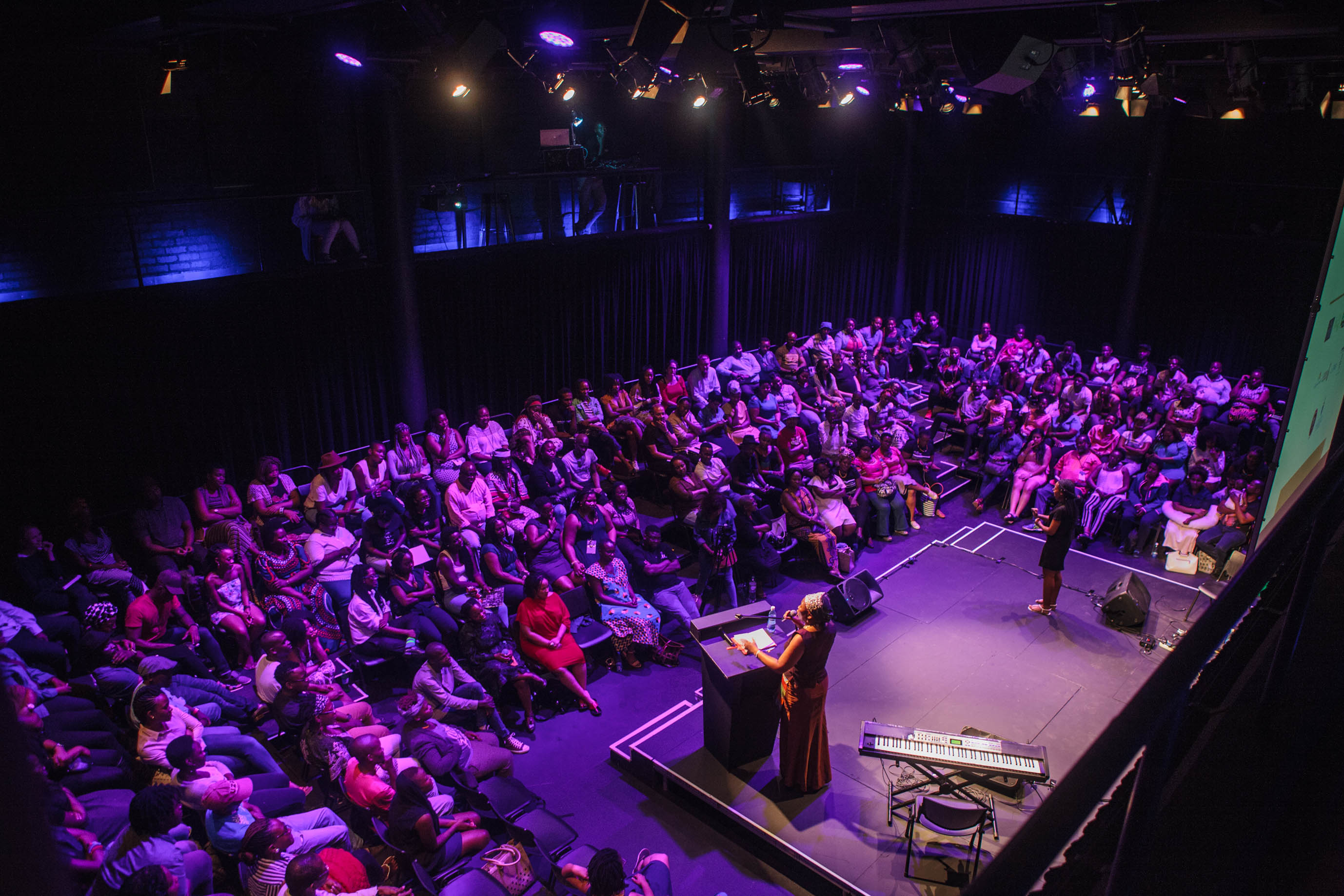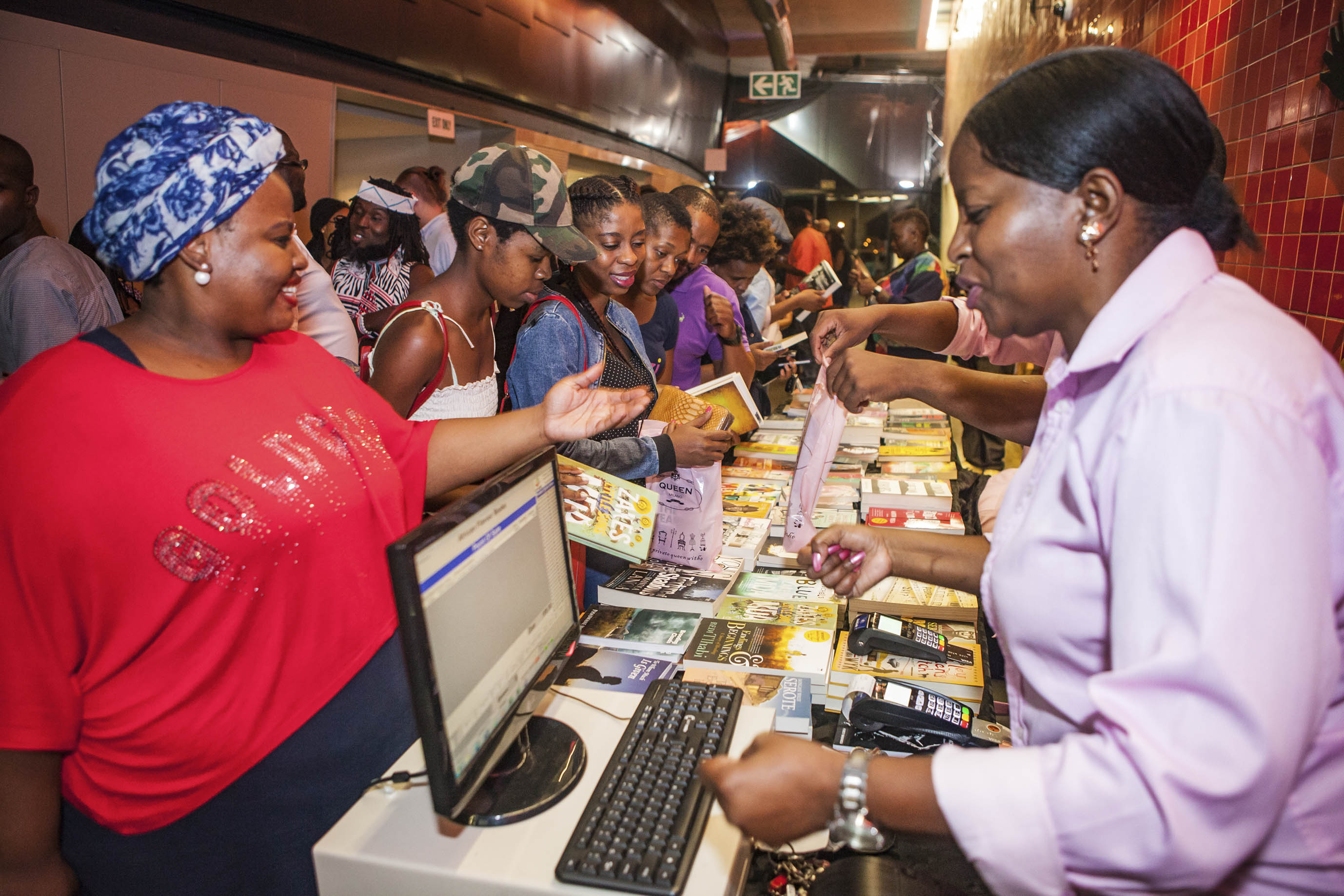The Nato summit is planning a rapid reaction force to be deployed across Eastern Europe to deter Moscow.
Book club Amaka meets monthly. The 12 or so of its members are black. It was not intentional. They were just friends, some now working graduates who’d been involved in #FeesMustFall, and now decided that they were tired of their own ignorance. From their protest experiences they felt they lacked the knowledge to speak back to power and to be heard as intended, with intellectual rigour backing their activism.
They needed a space to acquire these intellectual weapons. The university certainly was not providing these weapons. They found … no, created, that space with each other.
Today’s meeting is on a cold, spring afternoon in deep Midrand. Virtually Centurion. Some people are running late, but eventually they arrive. Seven in total. The others couldn’t make it. The host adds another log to the raging fireplace. Food is served and it begins.
The book to be discussed is Frantz Fanon’s The Wretched of the Earth, a serendipitous choice.
Serendipitous because, depending on who you ask, black people in South Africa and books are having a moment, a love fest. Either that, or they always have been. It’s only that social media has made more visible the black tradition of an often ingenious and subversive struggle against the attempts of the colonial and apartheid projects to destroy or co-opt the knowledge systems of the native.
To keep darkies informed just enough to serve as “machine-animal” people, as Fanon put it; creatures upon whose exploited labour white society could live in comfort.
Book clubs like Amaka seem to have surreptitiously popped up everywhere overnight. Every second black person these days seems to belong to one. Some have formal social media accounts, such as @TheJoziBookClub and @LitAllianceSA. Others are informal gatherings of friends who enjoy the solitary act of reading, but need an outlet for the thoughts and emotions books stirred in them.
Their appearance coincides with that of black-owned bookstores, such as African Flavour Books, which recently opened a new branch in Braamfontein.
But whatever this phenomenon is, the Abantu Book Festival is, in many ways, emblematic of the moment. The festival released its sophomore line-up last week, a veritable list of the who’s who of black authors, along with a selection of fresh faces.
“Balance”, festival organiser and writer Thando Mgqolozana, calls it.
The word seems very much embedded in his actions since declaring in 2015 that he was done with the “white literary system”. A pragmatist, Mgqolozana intuitively recognises that his activism straddles two worlds — one run on white domination and money, and another, a more egalitarian world where ubuntu is the organising logic. For the latter to live, the former must die. But the path to this future is fraught with difficulties.
His view on the star-studded line-up is that you need famous, recognisable faces to draw in the crowds, and then balance that with newer and unheard of authors.
Mgqolozana’s pragmatism stands in stark contrast to the frustration of Thabiso Mahlape, publisher of Blackbird Books, an imprint of Jacana Media.

[The Abantu Book Festival audience is addressed (Mmuso Mafisa)]
Blackbird Books publishes books by black writers for black readers. Their bestseller so far has been Panashe Chigumadzi’s debut novel, Sweet Medicine. Many of the other titles have not achieved the sales figures she’d hoped. She is frustrated partly because, like Mgqolozana, she is risking her own financial security, as well as her physical and mental well-being in her commitment to the decolonial project.
The object of Mahlape’s frustration is the black middle-class market, which she thinks has uncritically imbibed the values of a literary culture never intended for them. They ape its literary snobbishness. This puts her under enormous pressure as both a publisher and an activist.
As a business-minded publisher, she knows that, for financial success, she should publish manuscripts that appeal to the black middle classes, who have the resources to buy enough copies so that Blackbird Books, at least, recoups its costs. However, the activist in her knows that in a country where nearly 65% of black households live below the poverty line, she wouldn’t really be publishing books for black people. She’d be publishing books for the elite.
That would make her no different from any other publisher, she says.
In her ideal world Mahlape would be publishing books for the readers of the big-selling paper, the Daily Sun.
Then she imagines a taxi driver in Orange Farm reading an excerpt from one of these books in that paper and she grows despondent. Not even Eyethu Mall, the main shopping centre in that area, has a bookstore.
She asks: Where would that taxi driver get a copy of the book?
But she knows that she can’t rely on the black middle class to buy such a book either, even the ones who are most vocal about the decolonial project. They, the objects of Fanon’s scorn in Amaka’s choice of books, identify with the values and views of the colonialists when it comes to what constitutes a “good” book.
Mahlape here is not talking about Bonang Matheba’s autobiography, where she admits she made mistakes. She is referring to The Last Stop, by Thabiso Mofokeng, set in the often violent world of the taxi industry, and which explores xenophobia and a Daily Sun-reader favourite, the paranormal. She is also referring to Miss Behave, Malebo Sephodi’s African Feminisms memoir, which is only doing well because the author has been working herself to near-exhaustion doing publicity.
She says Miss Behave has faced some criticism for being “too basic” from well-educated black readers versed in the likes of Judith Butler and Kimberlé Crenshaw, but was heartened to hear another reader say that reading Sephodi allowed her to read and finally understand Pumla Dineo Gqola’s work.
And that’s how reading development works, Mgqolozana says.
Readers, especially those in the early stages of their reading careers, need books with characters familiar to them. Then, from there, the sky’s the limit. The reading as pleasure bug has bitten. For Mgqolozana, that moment came for him as a child reading Joseph Diescho’s Troubled Waters and finding a character with whom he deeply connected.

[Books sales at the Abantu Book Festival (Mmuso Mafisa)]
There is a dearth of books in which the average young South African, a young black woman, finds themselves and their experiences reflected, Mgqolozana maintains.
His advice to Mahlape? Balance. Find that narrow path that guides activists such as herself from the old, dying white-dominated, money-run world to the new, more egalitarian world.
Sisonke Msimang, author of the new memoir Always Another Country, who is also on this year’s festival line-up, also sees reading for pleasure as a set of steps. Children especially need stories that move them from the school-taught mentality of reading as a chore to reading as pleasure.
A panellist at Abantu 2017, Msimang resists strongly the expectation that the event should let go of its origins as an act of resistance and become something else. In her mind resistance has value, for as long as the oppression remains.
Msimang is backed by Sihle Khumalo, who penned that infamous op-ed, “It’s a fact: darkies just don’t read”. Khumalo, also featured this year, sees Abantu surviving into a second year as a sign of progress since he penned the column in 2009. More measured in tone than in the incendiary column, Khumalo maintains all of this should have happened decades ago. Darkies reading is, to him, the biggest, “baddest” middle finger to Bantu education. He wants more Abantu Book Festivals, more Blackbird Books, more black bookstores and book clubs.
Gqola, also to speak at the festival, wants the same. She sees Abantu growing into an institution, with events around the country. But she was honest that she has neither the will, temperament nor the know-how to do this work. The admission is a refreshing departure from others making these demands of Mgqolozana and Mahlape when they themselves aren’t prepared to do the work, let alone admit they aren’t.
Mgqolozana, like Mahlape, has put himself at risk for the decolonial project, at risk for the love of black people. He is saddened when others who cry decolonisation, especially the monied middle classes, don’t even chip in for something as “armchair activist” as Abantu’s crowdfunding campaign for this year’s event.
That the likes of Mgqolozana and Mahlape are at risk and alone, yet surrounded by blackness, brings to mind the aphorism: “Everybody wants to be black until it’s time to be black.” It is used in the black American context to refer to white people appropriating black culture because it’s cool, but disappearing when black lives are under attack from the state.
In our context, it speaks to Biko’s understanding of blackness as, firstly, recognising that you are oppressed unjustly and, secondly, using that recognition as the basis to unite with other oppressed people to overthrow the cause of your oppression.
Many black people readily do the first part. It’s the second, the one that demands self-sacrifice, where the likes of Mgqolozana and Mahlape find themselves on their own.